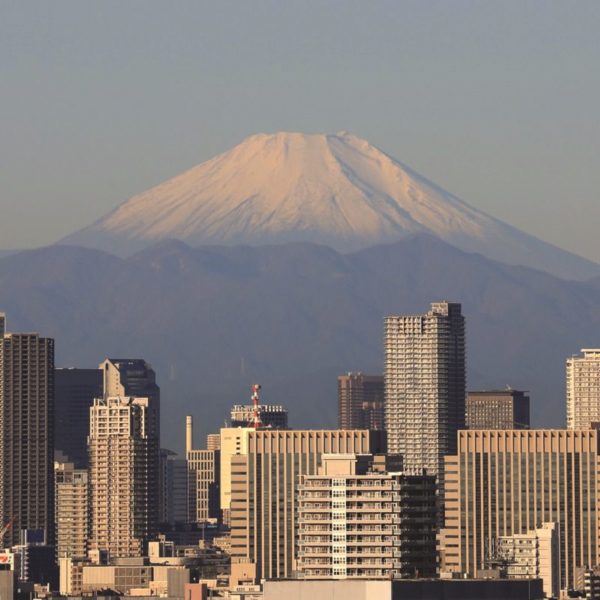Ziv Nakajima-Magen of Nippon Tradings International (NTI) reveals how to obtain property financing from Japanese banks for non-resident foreigners.

FINANCING FINALLY AVAILABLE IN JAPAN FOR NON-RESIDENT FOREIGNERS
One of the most daunting features of Japan’s real estate property investment landscape, for non-resident foreigners at least, has always been the lack of available financing options. Over the course of the last year or two, however, things have finally started changing – although, in typical Japanese fashion, they are changing at an extremely slow pace.
HOW DOES IT WORK?
There are now at least two lenders in Japan who have agreed to grant investment loans to non-resident foreigners, provided the investors incorporate in Japan, set up a local company or local branch office of a foreign company – and, in one case at least, if the investor has residency in Hong-Kong, the lender can forego even that single incorporation requirement.
Incorporation in Japan normally costs between 3,000-8,000 USD, depending on the company structure and facilities required – and if the company has approximately 5 mil JPY invested in it (approximately 46,000 USD at today’s rates), and/or hires 1 or 2 local staff members, the investor can even use the structure to gain residency if interested.
Regardless, however, even a simple, cheap setup of approximately 3,000 USD, with no further obligations, will make most investors eligible for an investment loan from one of the Japanese lenders offering this service, as long as they pass a relatively short and simple credit check.
While the Japanese lenders prefer not to advertise this new service directly to consumers (the reason behind this policy remains a mystery at the time of this article’s publishing), they have nonetheless struck up a working relationship with several foreign mortgage brokers, who are now offering this service, as well as the incorporation service itself – although at the pricier end of the setup fees scale – to their clients (feel free to contact the author of this article for an introduction to one of these brokers, GMG Asia, head-quartered in Singapore, with office presence in Hong-Kong and Shanghai, China, as well).
LOAN TERMS
The terms of the loan are quite reasonable, if not the best available globally, and are as follows –
1. LTV ratio normally between 60-70% of the property’s purchase price.
2. Loan granted against a standard leasing business plan (Hotels/Guest houses and other short term stay businesses will NOT be considered) – however, once the loan has been granted, it may be possible to then convert the property into monthly leases, which can generate higher income if managed efficiently.
3. Minimum loan amount of 20 mil JPY (approximately 184,000 USD at today’s rates).
4. For incorporated borrowers, there is no age limit on the property under consideration. For Hong-Kong residents who do not incorporate, the property’s age must be under 25 years at loan maturity.
5. Maximum loan tenure of 25-30 years.
6. Areas included are Tokyo, Osaka, Kyoto and their immediate surrounds. Other big cities such as Nagoya, Fukuoka, etc, may be consideredsubject to lender approval. Ski resort areas, little country-side onsen (natural hot-springs resort) are unfortunately not a valid option at this stage – hopefully, with the ever-increasing interest in these types of properties, this policy might change in the future.
7. The mortgage broker charges a 1,500 USD loan setup fee – the lenders charge a 2% setup fee – both fees are only payable upon granting of the loan, and from the amount granted – so no out of pocket expenses for investors unless the loan is approved. While typical properties in these big cities would rarely yield more than 6 or 7% net pre-tax (and in Tokyo and Osaka’s case, more like 4-5% at most), once the out-of-pocket cash component has been factored in, and with the LTV ratio stated above, COC (Cash-on-Cash) returns end up far higher, often in the double digits even, particularly in Fukuoka and Nagoya – both cities which are due for some further price hikes in coming years, if Japan’s economy does well overall – Fukuoka due to it’s positioning as Japan’s gateway to/from Southeast Asia and its entrepreneurial/start-up reputation – and Nagoya due to the new bullet train line currently being constructed on the Tokyo <-> Nagoya line, which has seen transit times greatly reduced between the two major economic power-houses, and has also led to demolition of many buildings along the new tracks – which is creating ever-increasing pressure on occupancies in other parts of the city.

SUMMARY
Considering all of the above, as well as the huge uptick in global interest from tourists and businessfolks ahead of this year’s Rugby World Cup, 2020 Olympics, and 2025 World Expo – all global events scheduled to take place in Japan – now seems to be an excellent time to “pull the trigger” and secure an investment foothold in the land of the (once again) rising sun.


